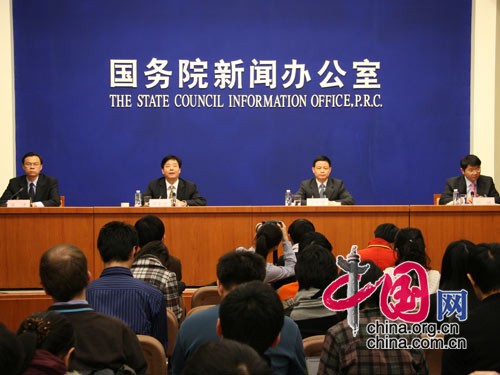China's foreign exchange regulator said Wednesday it was important to prevent big fluctuations of the Renminbi (RMB) rate against other currencies.

"It's normal that the exchange rate moves. It is abnormal that there is no movement at all and so is excessively large fluctuation," Deng Xianhong, deputy director of the State Administration of Foreign Exchange, told a press briefing.
Deng said China would "push forward with reform of the exchange rate regime in a self-initiated, gradual and controllable manner and keep the rate basically stable at a reasonable equilibrium level.
"This is beneficial not only to China, but also to the world and to tackling the global financial crisis," he said.
The currency, also known as the yuan, weakened against the U.S. dollar for a fourth straight day Wednesday on speculation that China would allow the yuan's depreciation to support struggling exporters.
The National Development and Reform Commission (NDRC), the chief economic planning agency, said a report quoting an agency official on the currency's movement had been "totally fabricated".
On Tuesday, private media company China Briefing News published an English-language report quoting NDRC vice chairman Zhang Xiaoqiang as saying that the yuan could weaken to about 6.9 to 7 against the U.S. dollar.
The central parity rate was 6.8363 yuan per U.S. dollar Wednesday.
China unpegged the yuan from the U.S. dollar in July 2005 and allowed it to fluctuate against a basket of currencies. It gained 21 percent before stabilizing against the dollar in the middle of last year.
Capital flow monitoring
Growth in net capital flows into China slowed in the second half of 2008 as the global financial crisis deepened.
In that period, China's foreign exchange reserve increased by 137.2 billion U.S. dollars, about half of the 280.6 billion yuan in the first half, according to Deng.
He admitted the worsening global financial environment had brought uncertainty to capital flows and affected the international balance of payments.
"There are some multinationals remitting back profits or withdrawing investment to help ease fund shortages at home," he said. "But this does not mean they have lost confidence in the Chinese market. Funds involving such cases are limited and there is no huge capital flight."
Deng said the regulator would step up monitoring of cross-border capital flows and improve the early warning and crisis response system on the international balance of payments.
Forex investment
Investment of China's forex reserves, totaling 1.95 trillion U.S. dollars at the end of 2008, was largely safe, said Fang Shangpu, another SAFE deputy director.
Fang said the funds provided sufficient liquidity to aid responses to the financial crisis and the investment also yielded earnings.
Fang reiterated Premier Wen Jiabao's point made in an interview with the Financial Times on Feb. 1 that the forex reserves, unlike fiscal revenues, should be used to increase imports and overseas investment.
Asked if China would continue to hold or increase holdings of U.S. treasury bonds as the U.S. may increase lending to fund its 787-billion-U.S.-dollar stimulus package, Fang just repeated Wen's remarks.
Whether China would continue to buy or how much China would buy should be based on the need to protect the value of its forex investment, he said.
China remained the biggest overseas holder of U.S. treasury securities with a value of 696.2 billion U.S. dollars in December.
"We firmly oppose trade and investment protectionism," Fang said. "We hope the major reserve currency economies will take active measures to effectively respond to the current financial crisis and economic recession...to protect investors' rights and interests and boost their confidence."
(Xinhua News Agency February 18, 2009)